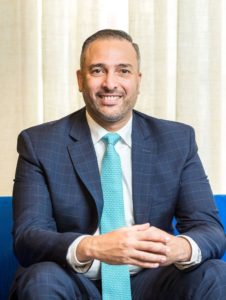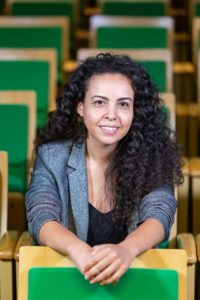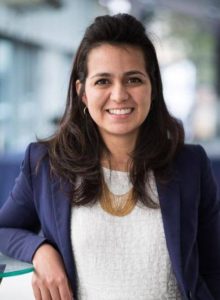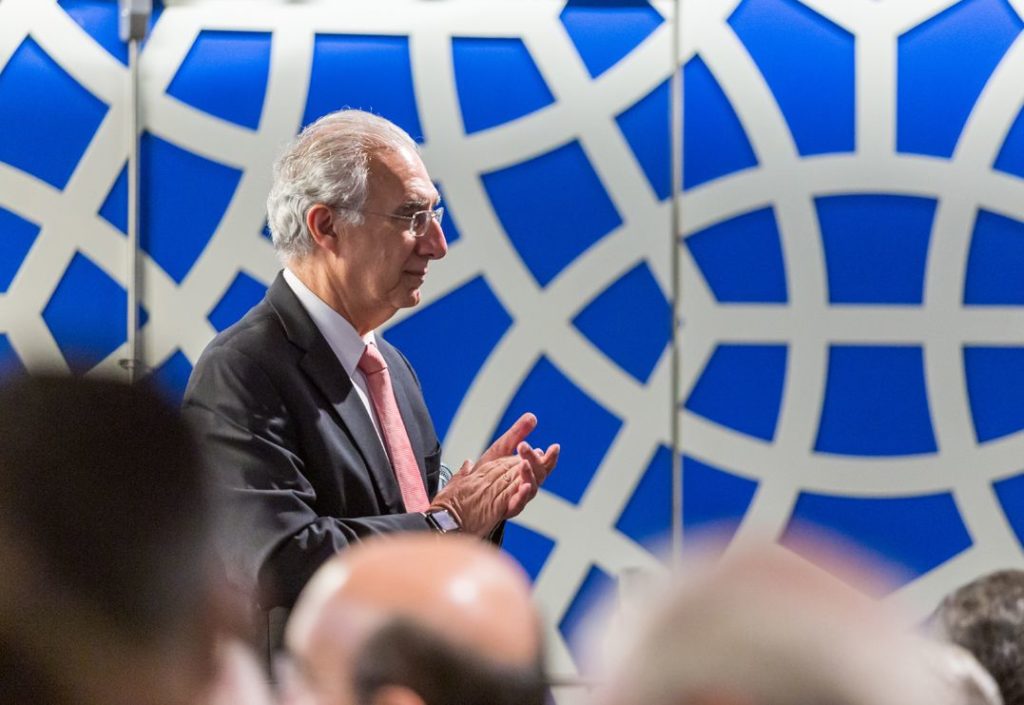São Paulo – A more robust and modern administration and management structure, tailored to new times, needs, and challenges in Brazilian-Arab relations, was put in place this month at the Arab Brazilian Chamber of Commerce (ABCC). The layout is based on strategic plans outlined two years ago that have been fine-tuned to match new developments, particularly the fast global shift towards digital prompted by the Covid-19 pandemic.

“At this time, the Arab Chamber is ready to take off and to consistently respond to the Social License to Operate (SLO) bestowed upon it by the Brazilian and Arab societies,” ABCC president Rubens Hannun (pictured above) told ANBA.
Hannun, who led the organizational overhaul alongside secretary-general and CEO Tamer Mansour and the board, claims that the restructuring is based on a new corporate culture, the need for which was ascertained while outlining the strategic plans. He also said this is only one step in the adaptation process, with more to come. The following steps will be taken by the next ABCC board –Hannun’s term as president ends this month.
Personnel has been reassigned and promoted, and new professionals have come on board in multiple sectors within the ABCC, but the key changes are the creation of a New Business area, as well as additions to Institutional Relations and Marketing & Content. Executive Silvana Scheffel Gomes has been hired as a Marketing & Content director. Former Commercial Department manager Daniella Leite is now New Business director, and Institutional Relations former manager, Fernanda Baltazar, is now senior manager and ready to take on a broader scope of work.

“Even though 2020 was a difficult year, the Arab Chamber grew a low, so we had to get some areas under a bigger umbrella,” explains Mansour. That was the case with the Commercial Department, which is now under New Business. “We are reaching beyond simple commerce, because we believe now is the time to help exporters overcome boundaries,” says Mansour, in a reference to paperwork requirements, certification, cost-related issues and obstacles to trade.
The New Business area also came about to address new realities and needs – many of which have arisen as a result of the pandemic, yet are here to stay, such as the need to conduct business in virtual form. In addition to moving onto digital platforms, the Arab Chamber rolled out its ABCC LAB project, devoted to fostering startups that deal with Brazilian-Arab relations.

The Institutional Relations area is tackling broader endeavors, such as the ABCC’s internationalization, the expansion of its brick-and-mortar facilities across Brazil, the United Nations Global Compact which the organization has subscribed to, more substantial work alongside the Brazil-Arab Countries Parliamentary Front, corporate governance work, and close cooperation with partner institutions in Brazil and abroad, among other initiatives.
The Marketing & Content Department will include Marketing, Events, Commercial Intelligence, and the Brazil-Arab News Agency (ANBA). Its incoming leader, Silvana Gomes, boasts vast experience in international business. She is coming from the executive board on Business and Exports at São Paulo Negócios, the investment and export promotion agency of the city of São Paulo. She is also a professor at three different institutions, including the Higher School of Advertising and Marketing (ESPM).

“I will adopt best practices in marketing strategy to bring to fruition the solid set of values the Arab Chamber relays through its services, which are performed by its excellent professionals with Brazilian and Arab clients in mind. My mission – not only within the Chamber but also in life – is to value people, to share knowledge and make a contribution to the personal and professional wellbeing and development of everyone I relate to, at work and everywhere else,” says Gomes.
The changes had been underway at the ABCC, but they were made faster by brand new needs, particularly since the new global dynamics ushered in by the pandemic. The organization fast-tracked its strategic plans, and ten-year targets became five-year ones. The Information Technology Department grew bigger; a Strategic Commercial Committee was put in place to meet demand for food in Arab countries; the Arab House, which will focus on community relationship, and the women’s committee WAHI – Women Who Inspire were created.
“These things have happened in response to events, but they are here to stay, and it takes a structure to support and enable these projects to come to fruition and to blossom,” argues Hannun. He explains that the new structure, which he sees as more entrepreneurship-oriented, further cements the organization’s position in Brazilian-Arab relations.
Translated by Gabriel Pomerancblum




